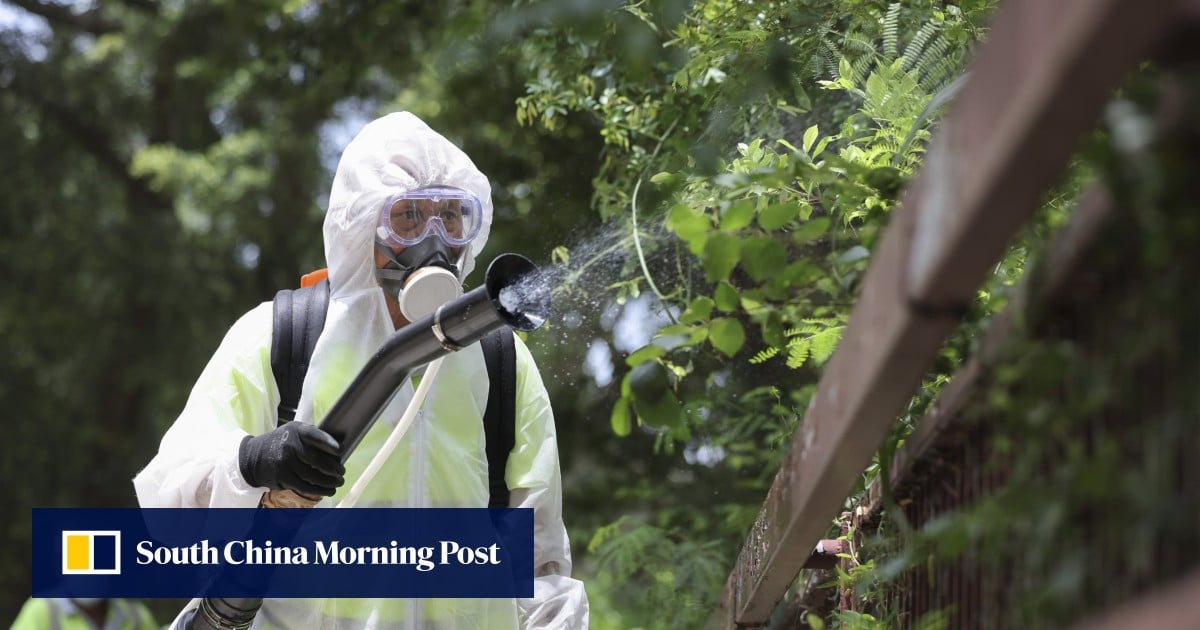Global warming and globalisation have significantly increased the number of imported dengue fever cases in Hong Kong, health experts have said, with annual infections rising from dozens to more than 100 in the past two decades.
This rapid increase has occurred alongside a growing risk of mosquito-borne diseases in the city. So far this year, Hong Kong has recorded 21 imported chikungunya fever cases, a new high since the disease became notifiable in 2009, following an outbreak in neighbouring Guangdong province.
Among the seven types of mosquito-borne diseases that must be reported to health authorities, dengue fever has seen the most significant increase from 2005 to 2025, according to statistics from the Centre for Health Protection reviewed by the Post.
Dengue typically causes symptoms such as fever, headache and pain behind the eyes. While most people recover within a week, the disease can develop into circulatory failure and even death in some cases.
The number of viral infections rose from about 30 to 80 annually between 2005 and 2012, then increased to about 100 in 2013 and nearly 200 in 2019.
The yearly figures dropped to between two and 62 cases from 2020 to 2023, likely due to severe travel disruptions during the Covid-19 pandemic, but surged to 161 in 2024 as cross-border movement resumed.
